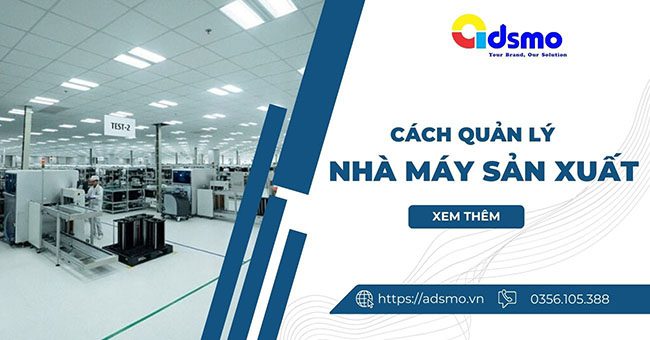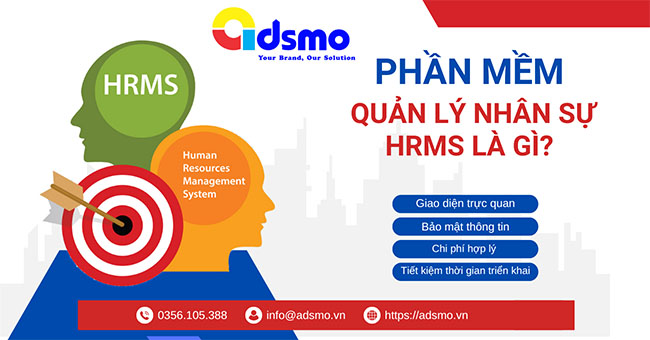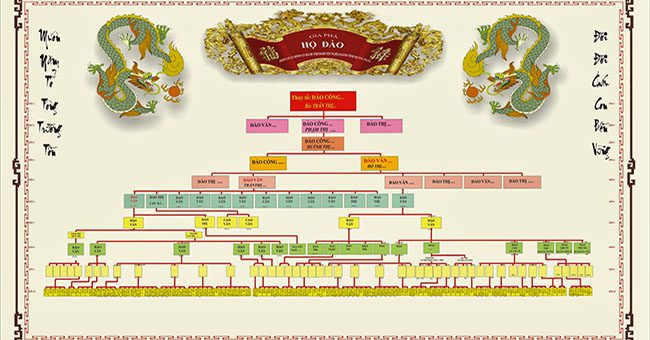For manufacturing enterprises and factories, management plays an extremely important role. Effective production management will help reduce costs and risks, promote labor productivity, and tightly control resources. So what is production management? How to effectively manage a manufacturing factory? Let’s refer to the article below of ADSMO.
What is production management?

Production management is the process of organizing, coordinating, and controlling production activities to ensure that products are produced with the right quality, on time, cost-effectively, and optimized in the production process such as human resources, raw materials, etc. To achieve these goals, managers must perform tasks such as production planning, monitoring production progress, controlling resources, overcoming risks, managing product quality, and ensuring labor safety and environmental regulations.
Production management plays a role in ensuring the competitiveness of businesses in the market. At the same time, ensure product quality, improve the overall performance of enterprises and factories.
How to manage a professional factory
To manage a professional factory requires management skills and tight organization to help activities in enterprises and factories take place effectively. Here are some ways to manage a professional manufacturing plant:
Production planning

Production planning is the first step for businesses to grasp an overview of the production process. Managers need to determine market demand and analyze forecasts to develop appropriate plans to meet work schedules.
Human resource management
Human resources are an indispensable part of any business, especially in factories and manufacturing plants. Human resource managers are responsible for selecting, assigning work, determining the tasks of each working group, along with training and developing human resources skills, to improve quality and labor productivity.
Optimizing production processes
Optimizing production processes, applying new methods to improve production efficiency. In addition, businesses need to regularly evaluate and optimize work processes to reduce production time, increase output and reduce costs.
Quality management
Quality management is another important aspect of professional production. A quality control system needs to be built in detail and clearly to ensure that products meet quality standards and customer requirements. Regularly carry out periodic quality control procedures to adjust and resolve quality problems as soon as they arise.
Materials and inventory management

Materials and inventory management is another aspect of effective manufacturing plant management. Businesses need to maintain an effective materials management system to reduce waste and optimize inventory. Managers build stable relationships with suppliers to ensure a stable supply and no shortage of raw materials during production.
Labor safety management
Safety and the environment are factors that cannot be ignored. Managers need to comply with safety and environmental regulations to protect employees and minimize negative impacts on the environment. At the same time, regular safety training helps employees master work safety rules.
Receive feedback and improve
Businesses that want to develop must continuously improve and receive feedback to overcome existing problems. Organize regular meetings, collect feedback from employees and customers to evaluate and improve work processes. Through receiving feedback, professional factories can achieve flexibility, improve product quality and maintain competitiveness in the market.
Automation in production
With the strong development of technology, businesses and factories have applied modern machinery systems, automation, and professional management software. The use of automation systems helps reduce dependence on labor and increase accuracy in the production process. Manufacturing enterprise management software will help monitor, automatically synthesize data,…
Production management software application – Effective solution for managing enterprises and factories

The use of ERP business management software in manufacturing companies brings many significant benefits. The software helps optimize the production process by automating repetitive tasks, from ordering raw materials to managing production and coordinating resources. This helps increase labor productivity and reduce the time required for each production stage, thereby helping businesses save costs.
Business management software provides, synthesizes information and data continuously about the production process, helping managers easily monitor and evaluate the performance of production lines. By analyzing data, businesses can detect and fix problems as they occur, thereby minimizing risks and keeping production processes stable.
Business management software also helps improve raw material management, inventory management, and supply chain management by automating inventory tracking and forecasting raw material needs. This helps businesses avoid shortages or inventory inflation, while optimizing the ordering and shipping process.
Applying business management software in manufacturing companies not only helps increase efficiency and reduce costs, but also brings flexibility and competitiveness to businesses in today’s increasingly competitive market.
>>>See more:
Contact ADSMO today – Your trusted partner in custom enterprise software solutions and digital transformation consulting.
INTEGRATED SOLUTIONS – BREAKTHROUGH DEVELOPMENT – COST OPTIMIZATION – PROFIT GROWTH. We are committed to delivering:
- Tailored management solutions based on your business needs.
- User-friendly and efficient systems.
- Professional customer support services.
Contact ADSMO now for a free consultation:
- Address: 8th Floor, HD Tower – 22 Pho Moi Street – Thuy Nguyen Ward – Hai Phong City
- Website: https://adsmo.vn
- Email: info@adsmo.vn
- Hotline: 0356 105 388














